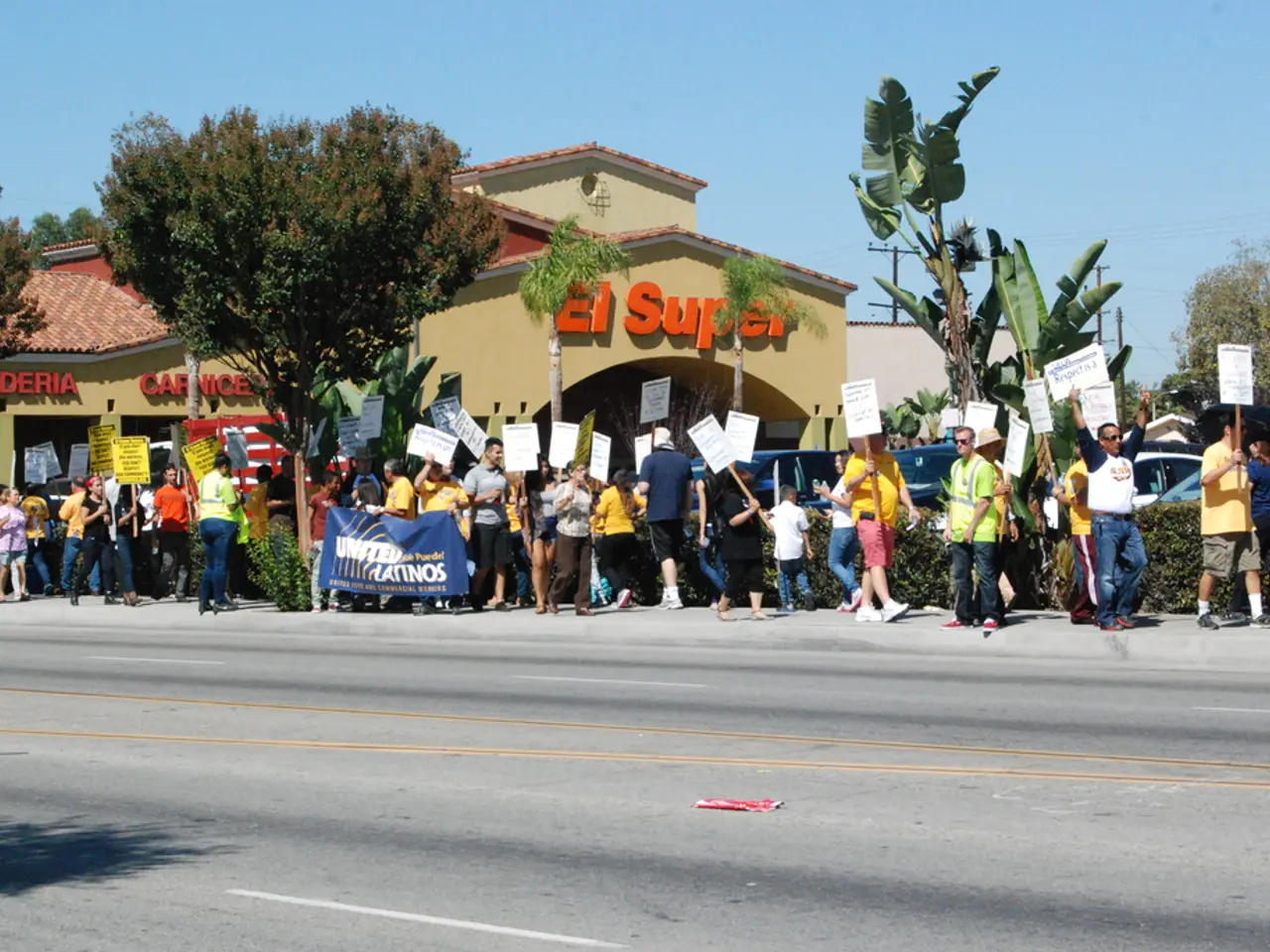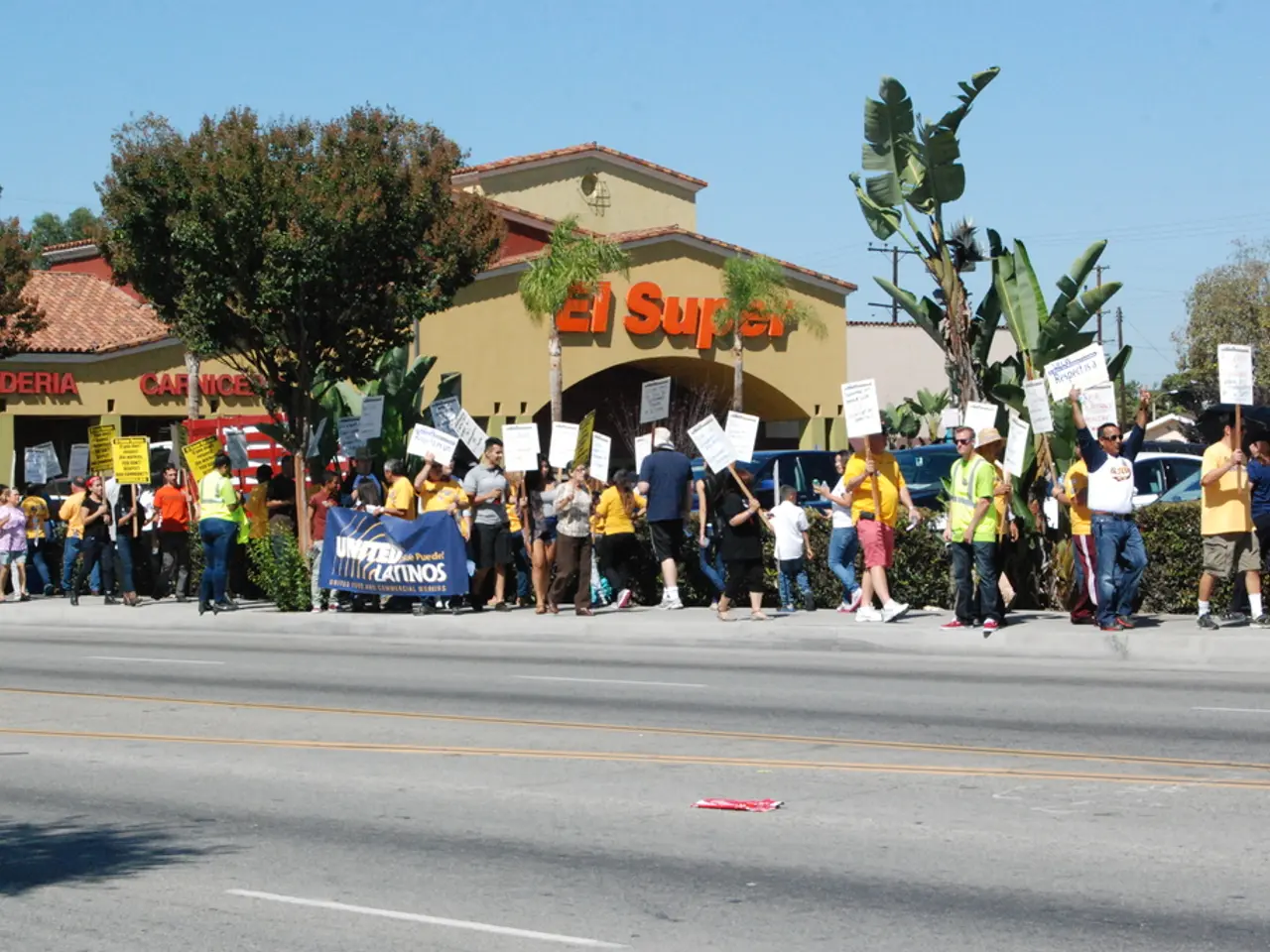Waning Democratic pride towards America poses troubling signs for the party, according to experts
In 2017, approximately two-thirds of Democrats expressed pride in their country, according to Gallup polling. However, the landscape has significantly shifted since President Donald Trump's first term.
The decline in American national pride among Democrats can be attributed to several factors including ideological and political polarization, disagreement with Trump's policies and leadership style, and a deepening skepticism about the country's direction under his administration. Democrats often viewed Trump's presidency as divisive, undermining democratic norms, and emphasizing nationalism in ways they found problematic. This contributed to a decline in patriotic sentiment within the party, reflecting dissatisfaction with how America was being represented and governed.
The implications for the 2026 elections are substantial. The internal Democratic divisions, as evidenced in events like the 2025 New York City mayoral race, indicate that Democrats are grappling with their identity and unity amid ongoing political challenges. This disunity, compounded by contentious actions from the Trump administration during his second presidency, affects voter enthusiasm and could influence electoral outcomes.
If Democratic national pride remains low or turns into increased ideological fragmentation, it might weaken the party's cohesion and appeal to moderate voters, potentially advantaging Republicans or Trump-aligned candidates. Conversely, efforts by progressive and socialist wings to galvanize activism, as seen in supporting candidates like Mamdani, could reshape party dynamics and energize a segment of the base but may also further polarize the electorate.
The Washington Post published a Monday opinion article titled, "This isn't the same Democratic Party as Trump's first term." The article, written by election data analysts Lakshya Jain and Harrison Lavelle, notes that Democrats are "significantly less likely to report being proud of America now than at any other time in recent history." In 2025, only 36% of Democrats are reportedly proud of their country.
The shift in the Democratic Party could be "ominous" for establishment Democrats, who are desperate to win Congress in 2026 to neutralize Trump's White House agenda. The attitudinal shift in the Democratic Party might explain why the base is receptive to politicians like Zohran Mamdani, a self-avowed democratic socialist.
Observers and pundits should remember that the Democratic Party of 2026 is not the same as the Democratic Party of 2018, even if the midterm dynamics seem similar. The Washington Post piece suggests that Democrats are already worried about winning back voters for 2028. The rapid dip in self-described national pride among Democrats after both of Trump's election victories, with a modest rebound after his loss, underscores the importance of this shift in party sentiment.
In summary, the decline in Democratic national pride is linked to opposition to Trump’s presidency and the polarized political climate. This decline influences Democratic unity and electoral strategies heading into 2026. Continued fragmentation within Democrats could impact their electoral competitiveness, possibly benefiting Trump-aligned Republicans or creating openings for progressive candidates challenging the establishment.
The decline in American national pride among Democrats, as noted by The Washington Post, has significant implications for the 2026 elections, as it could potentially weaken the party's cohesion and appeal to moderate voters, advantage Trump-aligned Republicans, or create openings for progressive candidates who can galvanize activism, such as Mamdani. Furthermore, the deepening skepticism about the country's direction under Trump's administration has led to a shift in the Democratic Party's policy-and-legislation and politics, making it distinct from previous years.








